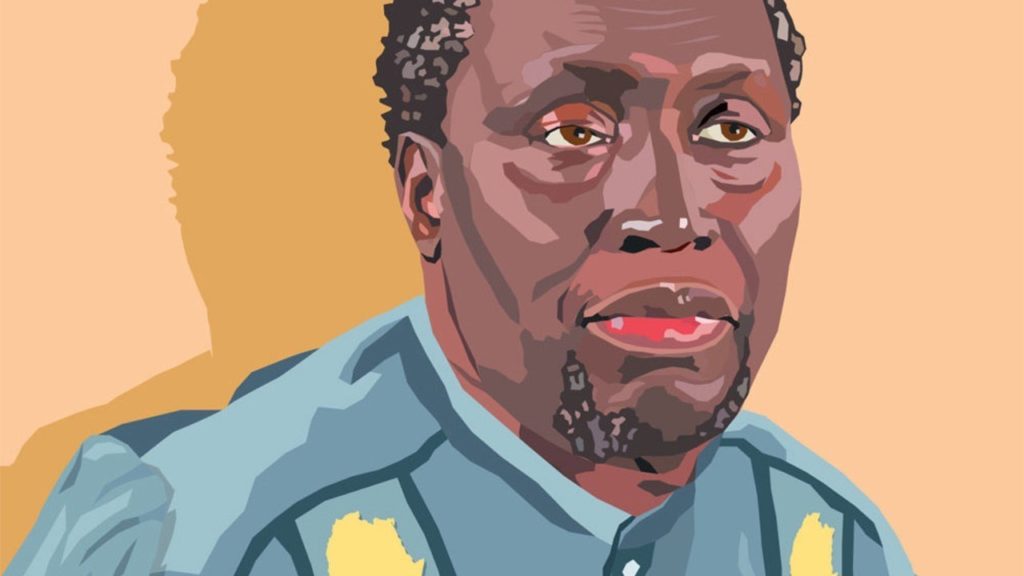Kenya’s Ngũgĩ wa Thiong’o Is Recipient of Erich-Maria-Remarque Peace Prize 2019
AFRICA, LITERATURE, 3 Jun 2019
Kimpa Vita Press – TRANSCEND Media Service
28 May 2019 – Every two years since 1991, the city of Osnabrück , Germany, has awarded the Peace Prize, named after the world-famous writer Erich Maria Remarque, born in Osnabrück. This year the award will be presented for the 15th time.
The Erich-Maria-Remarque Peace Prize, endowed with 25,000 euros, is awarded to the Kenyan writer and cultural scholar Ngũgĩ wa Thiong’o chiefly with regard to his enlightening anti-colonialist topics, his reference to traditional African theatre and narrative art and his advocacy of the preservation of his mother tongue as a mark of identification. Ngũgĩ wa Thiong’o understands communication among the different languages as a peace-building element. He is regarded as one of the most important voices in African literature.
His essays, collected in his anthology Decolonising the Mind, determine the discussion of the continuing consequences of the colonisation of Africa to this day. Since 1984, he has been writing his literary texts only in his mother tongue, Kikuyu (Gikuyu), which he then translates into English. For him, writing in African languages is part and parcel of African literature, since it encompasses the myths and ways of thinking as well as the culture and the mentality of the people who speak this language.
Through equality of the languages and decolonisation at all levels, ruling, postcolonial power structures in the countries of Africa could be overcome and an own strong identity achieved, which could ultimately also prevent the expected stream of refugees to Europe. His collection of essays Decolonising the Mind also contains a selection of lectures and articles that fundamentally illustrates his postcolonial criticism and cultural studies theses.
“Especially in his essays Ngũgĩ wa Thiong’o refers at a very early stage to the highly topical discussion concerning the consequences of the colonial era – here, for instance, I am thinking of the question of the return of the captured cultural heritage – and the necessity of overcoming the power structures in the post-colonial states of Africa, which were also enabled or even only made possible in the first place by the European states,” says Lord Mayor Wolfgang Griesert.
“With Ngũgĩ wa Thiong’o we are honouring a writer who is concerned with the self-determination of African cultures and with a dissociation from colonial constraints. His attempt to create a dialogue through literature in spite of or indeed because of the different languages evokes understanding for this continent and can thus contribute towards peace. Also with regard to the avoidance of a new colonialism, as endeavoured today by China for example, Ngũgĩ wa Thiong’o is an important representative of independence through language”, says the statement of the jury.
Ngũgĩ wa Thiong’o vehemently advocates the right of peoples to cultural self-determination as an identity and peace-building characteristic and thus corresponds to the thinking and conviction of Erich Maria Remarque, who, in 1929, stated on the consequences of the First World War:
“We finally know that all people in the world are equal; we know that all have the same concerns, the same joys, the same hopes and the same life. Today we take the trouble to look into each other’s heads. And four years of war have only proven the value of peace.”
****************
The association “Sea-Watch” receives the special prize endowed with 5,000 euros. The aim is here to honour the civic commitment to the rescue of refugees at sea and to make it more visible to the public. “Sea-Watch” will also be honoured for their support of legal escape and entry routes as well as their demand for the rescue of refugees in distress at sea by the responsible European institutions. The initiative, which is financed exclusively by donations, is supported by volunteers from all over Europe. “Sea-Watch” has been involved in the rescue of well over 37,000 people.
The award ceremony will take place in Osnabrück, Germany on Friday, November 29, 2019.
Go to Original – kimpavitapress.no
Tags: Africa, Culture, Kenya, Literature, Nonviolence, Peace
DISCLAIMER: The statements, views and opinions expressed in pieces republished here are solely those of the authors and do not necessarily represent those of TMS. In accordance with title 17 U.S.C. section 107, this material is distributed without profit to those who have expressed a prior interest in receiving the included information for research and educational purposes. TMS has no affiliation whatsoever with the originator of this article nor is TMS endorsed or sponsored by the originator. “GO TO ORIGINAL” links are provided as a convenience to our readers and allow for verification of authenticity. However, as originating pages are often updated by their originating host sites, the versions posted may not match the versions our readers view when clicking the “GO TO ORIGINAL” links. This site contains copyrighted material the use of which has not always been specifically authorized by the copyright owner. We are making such material available in our efforts to advance understanding of environmental, political, human rights, economic, democracy, scientific, and social justice issues, etc. We believe this constitutes a ‘fair use’ of any such copyrighted material as provided for in section 107 of the US Copyright Law. In accordance with Title 17 U.S.C. Section 107, the material on this site is distributed without profit to those who have expressed a prior interest in receiving the included information for research and educational purposes. For more information go to: http://www.law.cornell.edu/uscode/17/107.shtml. If you wish to use copyrighted material from this site for purposes of your own that go beyond ‘fair use’, you must obtain permission from the copyright owner.
Read more
Click here to go to the current weekly digest or pick another article:
AFRICA:
- Sudan’s Paramilitary Attacks Largest IDP Camps amid World’s Biggest Displacement Crisis, Killing Over 100
- Flooding Displaces Thousands amid Ongoing Unrest in Eastern DR Congo
- Teaching Peace: Nurturing Young Peacemakers in Ghana through Education
LITERATURE:
